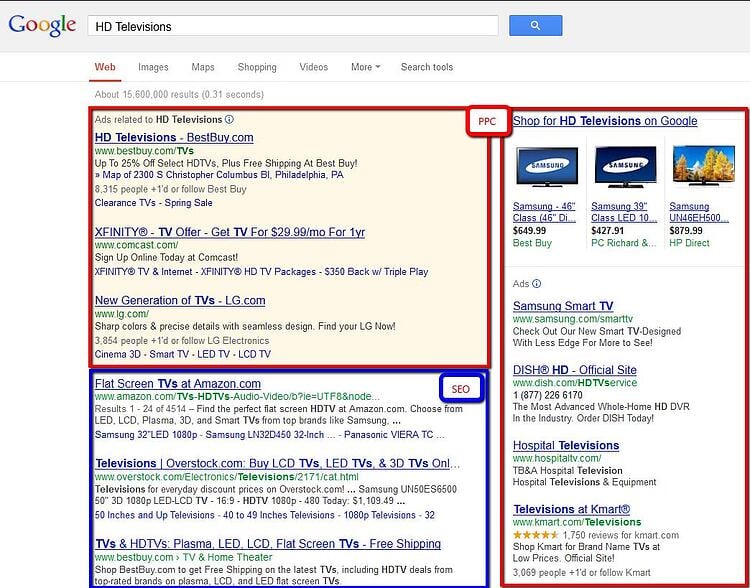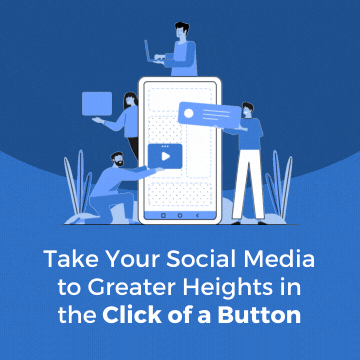Sociallyin, as a digital marketing agency who offers services in search, we are often asked what is the difference between PPC and SEO. Here is a little breakdown of each so that you can begin understanding PPC Optimization and SEO Optimization.

Pay-Per-Click (PPC):
The process of paying for advertising on websites and search engines is known as PPC advertising, also known as “Search Engine Marketing (SEM)” or “Paid Search”. In this process, the advertiser is not charged anything unless somebody clicks on their ad. It is basically like an auction where you compete against other advertisers for position.
While it can take a long time to rank #1 organically on search engine results pages via SEO, advertisers can use PPC ads to appear above organic or SEO results, seen in red in the image above, within minutes of opening an advertising account. PPC allows for quicker wins in visibility or conversions for advertisers while SEO is more of a long-term effort.
Advertisers will choose keywords that they bid on, which will match to search queries that users are searching for. It is similar to SEO in the fact that the content and relevancy are still important factors in getting the ad to show on top. Search engines give each ad a quality score (1-10 basis) based on various factors. That quality score is multiplied by your bid to give you an overall Ad Rank. In this situation, the advertiser only ends up paying a little bit more than the one below them. This means that although you might bid $10 it might only cost you $7.34 for a click to beat out competition.
Why pay for these ads when you can try to rank naturally for free? Here're a few reasons.
- Competitors are likely paying for ads or have the opportunity to, potentially winning new business or taking it from others.
- The opportunity to generate conversions can be heightened when ads are prominently displayed.
- Real-estate on the search engine results pages is at a premium.
- New market segments can be identified, based on what people are searching for, and ads can be shown where an advertiser’s site may not be able to rank naturally.
- Many users simply click on the first link of the results page, regardless of whether it’s an ad or an organic listing.
Paid search also expands into other websites outside of popular search engine, and types vary from text to image, to video among others. The most important thing is the relevancy of the ad to the searcher/web surfer. This will lead to the most efficient PPC campaigns, depending on the advertiser’s goals.
Search Engine Optimization (SEO):
What exactly is SEO? It basically means getting a website found and ranking high on search engine results pages. This is known as organic traffic, highlighted in blue above, and there is no fee charged to a searcher clicks on these results.
While this may sound each there is a catch. The hard part is getting the website relevant to the search query or highly qualified so it can be found. It can take awhile for this to happen, and it is a time and money investment.
Remember that search engines aren’t real-time rankings. It is an index of webpages that the search engine has visited over time. In order to rank higher, the two main factors search engines look at are: On-Page and Off-Page factors. It is an SEO manager’s job to understand what search engines find relevant.
On-Page factors include everything on your website that help search engines find it. Among many other factors, these elements include:
- Content on the pages relevant to the products and users.
- The site’s architecture. ( load time, internal linking structure, title tags, search friendly URLs, and others)
- Keywords that are relevant to what people are searching for.
It’s important to remember that SEO takes time and good content is the best way to build quality.
Is your agency or business having trouble with how SEO and PPC relate to each other? Request a consultation with one of our experts today. If you would like to get in contact with me you can follow me on Twitter and LinkedIn.












Your Comments :